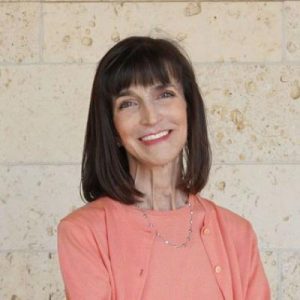Moody College of Communication Dean Rachel Davis Mersey will serve as Interim Provost, effective Sept. 1, UT President Jay Hartzell has announced.

“In the relatively short time since Rachel came to the Forty Acres from Northwestern University, she has demonstrated that she is a visionary who thinks strategically and who values and embraces excellence in teaching and research,” Hartzell said. “She makes decisions consistent with those values and, befitting a Moody College dean, she is a highly effective communicator. Rachel and I agree that now is the time to push to take full advantage of our window of opportunity to make UT the world’s highest-impact public research university. We will do so by empowering the incredible talent that exists at UT, and by bringing even more exceptional talent to our University.”
Rachel became dean of Moody in June 2023, when the college was celebrating the 10th anniversary of its transformational naming gift from the Moody Foundation. She holds an appointment as the Everett D. Collier Centennial Chair in the School of Journalism and Media and is a member of the Communication and Leadership faculty. As dean, she has focused on experiential learning through programs such as Bevo Video Production and collaborations with Texas Athletics; partnerships across campus and throughout industries, particularly in Austin, Los Angeles and New York; and accelerating impactful research and creative activities across disciplines.

Anita L. Vangelisti will seve as Interim Dean of Moody College. Vangelisti holds the Jesse H. Jones Centennial Chair in Communication at the University of Texas Her work focuses on the associations between communication and emotion in the context of close, personal relationships. She has published numerous articles in journals such as Communication Monographs, Human Communication Research, Journal of Personality and Social Psychology, Personal Relationships, and the Journal of Social and Personal Relationships. Vangelisti has edited or authored several books including the Cambridge Handbook of Personal Relationships, the Routledge Handbook of Family Communication, and Hurt Feelings in Close Relationships. She was co-editor of the Cambridge University Press book series on Advances in Personal Relationships, was associate editor of Personal Relationships, and has served on the editorial boards of over a dozen scholarly journals.
Before returning to UT to serve as dean, Rachel was the director of Global Research Partnerships at Meta, the parent company of Facebook. She designed, hired and ran a multinational team that managed and executed a company-level initiative to increase data transparency while ensuring consumer privacy. She also delivered the first-of-its-kind data sharing program in support of the U.S. 2020 Facebook and Instagram Election Study, which was led by a team of independent academics that included Talia Stroud from the Moody College. This work was a natural extension of her extensive background in supporting research at both UT and Northwestern, and it demonstrated her capacity to lead and drive change in large organizations in both higher education and the private sector.
Rachel previously served as associate dean for research at Moody, where she was a champion for research and creative projects. Before joining UT, she was a professor and associate dean for research in the Medill School of Journalism, Media and Integrated Marketing Communications at Northwestern University. She holds a Ph.D. from the University of North Carolina at Chapel Hill, an M.S. from Northwestern University’s Medill School of Journalism, and a B.A. with honors from Wake Forest University in communication and studio art.
Rachel steps into this role at a moment when we are increasingly recruiting exceptionally talented students, faculty and staff. She will harness, develop and cultivate that talent so that we can build on our considerable momentum and continue to elevate academic programs across campus. She and her team will help our colleges and schools strive for even greater excellence and impact, while also looking for new ways to collaborate across the campus — including in the key priority areas of energy and the environment, technology and society, and health and well-being.
